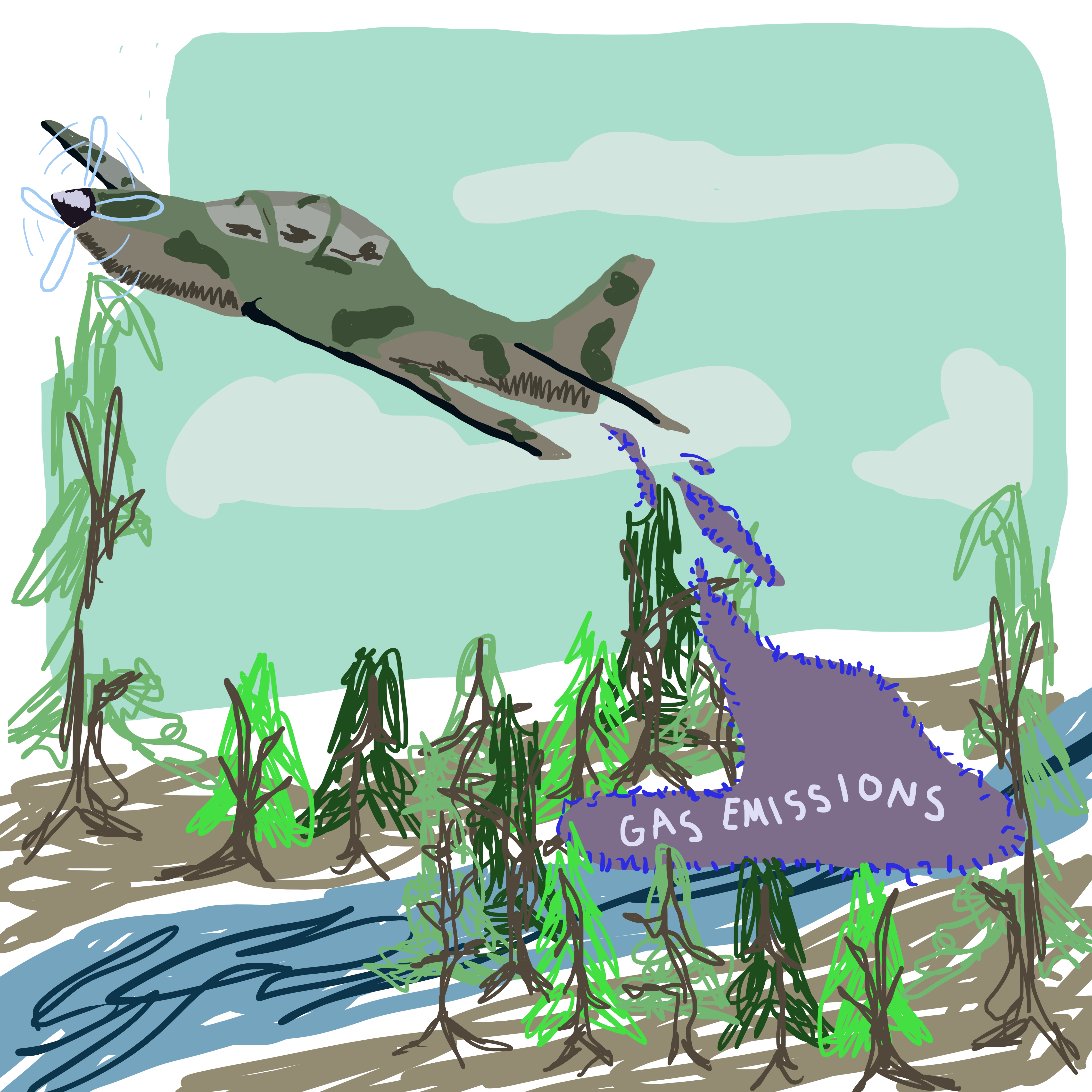Climate change has caused a series of unpredictable weather, hurricanes and flooding. However, it also has caused a lack of resources for many countries and in turn causes conflict. The impact military, war and climate all affect one another in different ways.
“We know that climate change sometimes makes resources much less and that is seen in Syria. They are running out of water so there is much more competition for things,” Chris Van Aller, a professor of international relations and political science, said. “There’s been [research] linking war to what is going on in Syria. While we think of these wars as purely ideological they are not just that they have a climate change component as well.”
Because of the rising temperatures access to water has been scarce. In 2006 a big drought hit Syra causing many farmers to leave for urban areas. This has caused a huge civil conflict because of lack of employment, according to the Smithsonian Magazine.
Along with this Turkey’s dam and hydropower construction has cut off water supply to Syria and Iraq. The two countries have accused Turkey of hoarding water, according to the Smithsonian Magazine. This has caused even more tensions among the countries due to the lack of resources because of climate change.
The U.S. military in particular is one of the biggest contributors to climate change.
“National militaries have a huge carbon footprint because we have to get people, weapons transported from place to place. We have these operations that have a lot of fossil fuels that go into it,” Scott Werts, an associate professor of biology, said. “In times of war you’re using a lot more fossil fuels. [War] takes what the military normally does and amplifies it quite a bit.”
“Because we are involved in so many conflicts around the world I think we emit more carbon just from the U.S. military than all 47 countries. We have troops, equipment in so many different places,” Werts said.
However, because of the rising temperatures military operations jobs are getting much harder.
“Oddly enough the U.S. military has come out with a number of reports saying that climate change is going to make their job harder,” Van Aller said. “Because they are the policemen of the world so they are the ones that are going to have to deal with.”
Werts goes on to emphasize why this makes military operations jobs harder.
“The military has a particular budget they have to apply every year and if it becomes more difficult to get transport… then they end up using more resources to do that kinda thing,” he said. “As sea levels are getting up and high tides are getting higher.. there is more money that has to go to moving some of [the naval bases] infrastructure or reinforcing it.”
The U.S. military is making strides to create more eco friendly technologies to lessen their carbon footprint on the world and make their jobs easier.
“It’s a big strategy gain for the military because they don’t have to stop so many times to refuel. If you can operate more equipment on solar power you don’t have to constantly refuel generators,” Werts said. “One of the most frequent things attacked are fuel convoys. So the less reliant on those fuel convoys especially if you are in an unfriendly area somebody close by doesnt want to sell you any fuel then it has to come from someplace else.”
Werts encourages people to make strides to lessen their carbon footprint.
“If everybody… in [the U.S.] took a step toward reducing their carbon footprint it’s going to have a much bigger effect than a reduction in the military just because of the number of people,” he said.
Graphic: Maggie Claytor/ The Johnsonian




